Films often capture the zeitgeist of a given moment, whether intentionally or not. For some reason, while watching The Dark Knight last night at our local theater, I kept thinking of one my late-80s favorites, Die Hard. Like the latest Batman flick, that film features a wily villain who stays one step ahead of the cops and plays a deadly cat-and-mouse game with the only man who, operating alone and outside the law, can stop him. Like The Dark Knight, Die Hard has clear overtones of terrorism and a theme that touches on the ineffectiveness of our vast police apparatus, with its rules and procedures.
But that’s where the similarities end. The villain in Die Hard — played by Alan Rickman with a delicious sleaziness — is not a terrorist but a thief, creating chaos as a subterfuge for a spectacular heist. The man who stops him — Bruce Willis, at the top of his smartass, wise-cracking game — is not a disguised billionaire with high-tech tools at his disposal, but an ordinary joe cop who uses his wits to beat the bad guys. In some ways, it’s prescient of the post-9/11 glamorizing of firemen and other quasi-invisible public servants. But the film’s really a weird commentary on excess and greed, an action-film version of Wall Street, Gordon Gecko with a gun and a greasy accent.
So what aspect of contemporary culture does The Dark Knight reflect? Here’s Andrew Klavan in the WSJ, asserting that Batman represents GW Bush:
-
There seems to me no question that the Batman film “The Dark Knight,” currently breaking every box office record in history, is at some level a paean of praise to the fortitude and moral courage that has been shown by George W. Bush in this time of terror and war. Like W, Batman is vilified and despised for confronting terrorists in the only terms they understand. Like W, Batman sometimes has to push the boundaries of civil rights to deal with an emergency, certain that he will re-establish those boundaries when the emergency is past.
Surprisingly, there’s some validity to this idea. I think thematically it’s a bit more complicated and less outright “conservative” (or neoconservative) than Klavan would have it, but certainly it’s there. Before I discuss why, however, I wanted to give a brief overview of some of the more remarkable aspects of the movie (spoiler alert).
First off, Heath Ledger‘s Joker is great. Christian Bale, as Batman, might be the hero, and Maggie Gyllenhaal provides a real emotional center for the film as his love interest Rachel Dawes. But Ledger is the star of the show. That’s not only true of his performance, which is loaded with a sort of electrified anguish that makes him fascinating to watch every time he steps on screen — as if even the Joker’s a little confused at just how fucked up he is. It’s also true in the sense that every move Batman, the cops, and even the other crooks make is in response to something the Joker does. He’s a true “agent of chaos,” as he explains at one point; never more so than when he torches a mammoth pile of money just for the hell of it in front of an incredulous mob guy.
In that sense, it’s not that big of a stretch to compare him to a figure like Osama bin Laden, or at least our darkest fears about him. The mafia is out to make money — they have organization, structure, a “plan,” as the Joker puts it; he has none. He’s just out to “watch the world burn,” as Michael Caine‘s Alfred puts it in some of the film’s characteristically wooden dialogue.
His unpredictable actions and magnetic presence also serve to mask some of the truly loopy holes in the film. Like the idea that all of Gotham’s various gangs — Italian, black, Latino, etc. — would do all their banking together, let alone with a slick Chinese dude based in Hong Kong. Or that a single bad guy with a band of what seem to be half-wits and teenage thugs is able to repeatedly overpower those mob guys and their henchmen. Or that the same bad guy — in a city already on red alert and with every cop looking for him — is able to somehow wire huge buildings, ferries, and hospitals with high-powered explosives. The incredible organization and sheer unlikeliness of the 9/11 attacks gives a terrorist like the Joker a grain of believability. We need to believe in an enemy as insane and powerful as the Joker in order to justify the response.
In The Dark Knight, that response is brutal and total. Maybe not total in the ultimate sense, as Batman appears to stick to the traditional hero’s prohibition against taking a life. But the “boundaries of civil rights” that Klavan writes about “pushing” occurs when Batman uses some of his techie toys to tap every cell phone in the city, justified of course in the need to catch the Joker. There’s a strenuous debate about this, and one of the final scenes shows Morgan Freeman’s highly moralistic tech guy — the only one with access to the rigged software — quietly destroying it on his way out the door. If one were to compare this to our current “debate” about warrantless wire-tapping, well, there really hasn’t been much debate, and no intention to tear down the machinery when the bad guys are caught, because the war on terror has no end in sight. The only parallel is the fantasy that there’s a highly moral person sitting at the controls, listening exclusively to the conversations of people who have something to hide.
Furthermore, if we’re to take GW as “The Dark Knight,” willing to do whatever it takes to capture the terrorists, even if it means being (gulp!) unpopular, how are we to reconcile that with Batman’s repeated desire to withdraw completely and support Aaron Eckhart‘s D.A. Harvey Dent, who wants to do things on the up and up? Or Rachel Dawes’ finally choosing the latter over the former? One’s tempted to envision the love interest as a stand-in for the American people, understanding but unable to approve of The Dark Knight’s methods, wishing this bad boy could be more like the law-abiding D.A., and vice-versa. The only logical way to reconcile the two is to imagine GW as both Dent and Batman; he’s Batman in the sense that only he is willing to do what it takes to defeat the terrorists, but by legalizing those methods — or tearing down the parts of the Constitution that stand in their way — he transforms himself into Dent. Needless to say, this imaginative leap simply doesn’t work.
Finally, though, The Dark Knight is an accurate reflection of the current times simply by being so relentlessly dark. While Die Hard was chock full of Willis’ banter contrasting with the unintentionally funny Euro-trash villains, Bale never cracks a smile, and the only wit belongs to Ledger’s Joker. But it’s the blackest of humor, the tears of a clown. No wonder, when even the left has a hard time laughing at a silly magazine cover spoof. I’ve had a hard time lightening up myself lately, and it’s a mood I sense every time I open a paper or turn on the TV or just walk down the street. A dark night, indeed.


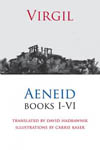
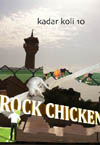
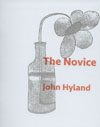

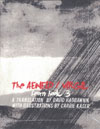
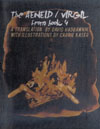
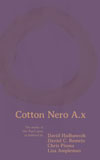
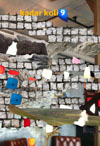
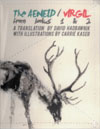

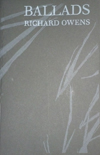
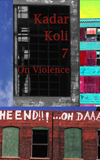

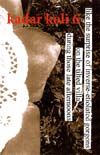
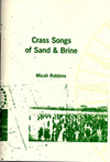
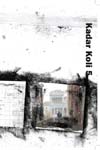
nice read. i wish i had jotted it when and where i first heard it, but i swear last week sometime a friend from tinidad/tobago was talking about the word “dubba” (shortened version “dub”) means crazy and stupid. maybe i didn’t jot it down b/c it seemed too easy.